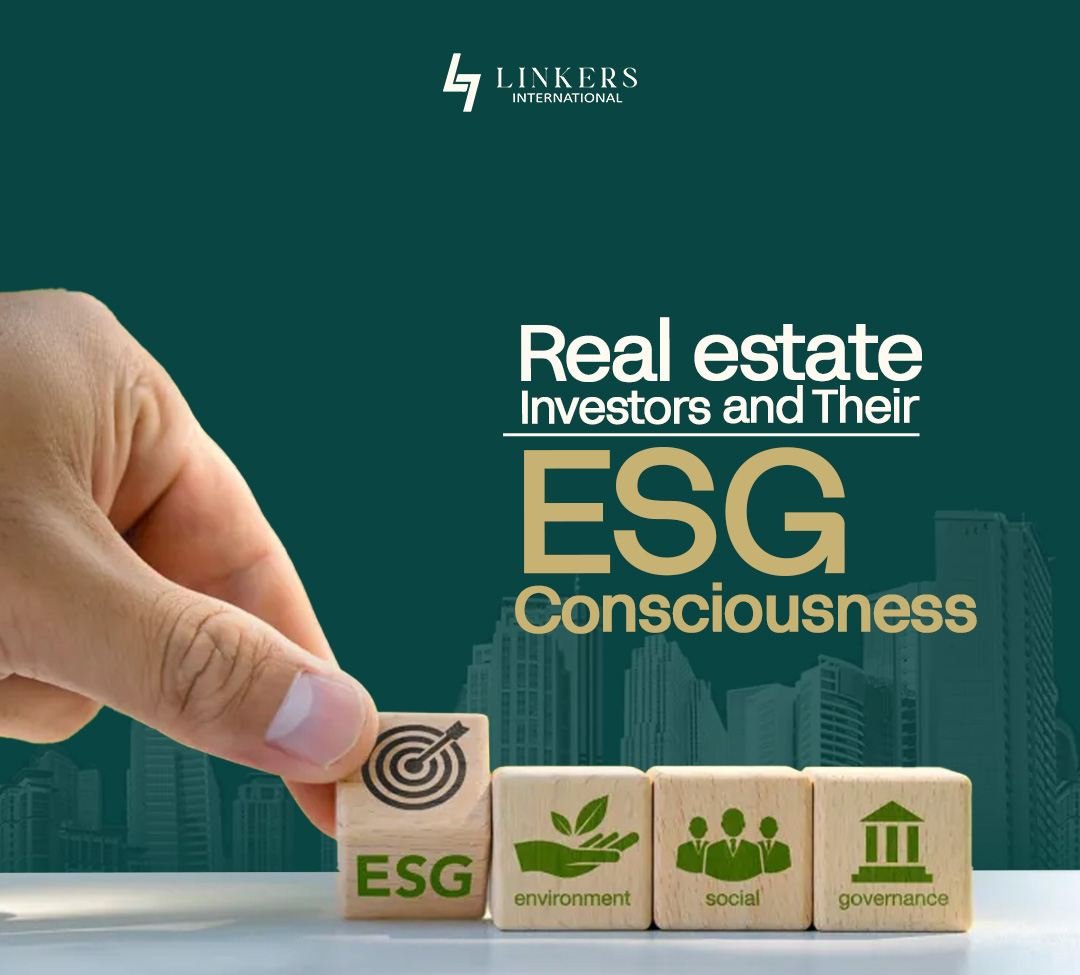Real estate investment has traditionally focused on location, design, and return. But today’s investors are demanding more, not just profits, but purpose. They want to know: Is this project sustainable? Ethical? Future-proof? The answer lies in embracing ESG principles.
What is ESG Consciousness?
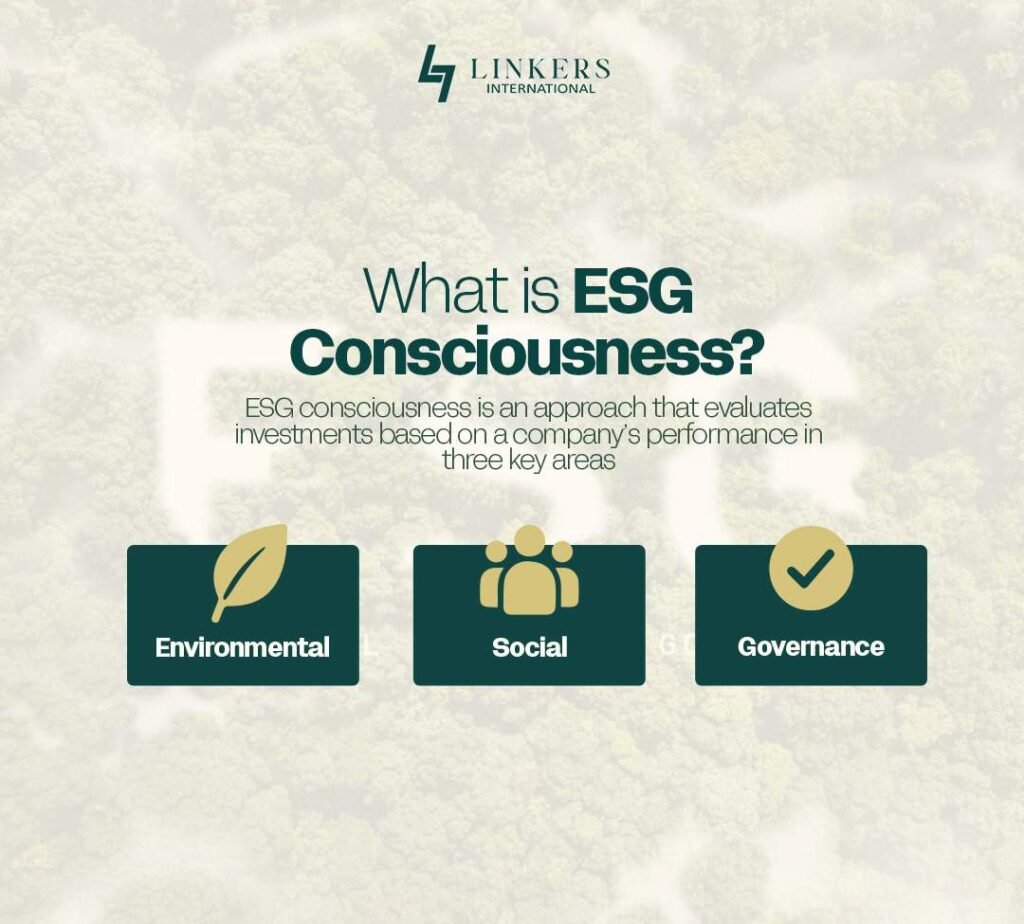
ESG consciousness is an approach that evaluates investments based on a company’s performance in three key areas: environmental impact, social responsibility, and corporate governance. ESG is more than a trend; it’s a new benchmark for smart, responsible investing. It helps investors assess the long-term viability of projects beyond immediate returns.
- Environmental: Focus on energy-efficient design, carbon reduction, and climate-resilient construction.
- Social: Prioritize community wellbeing, inclusive spaces, local employment, and health/safety standards.
- Governance: Enforce transparency in contracts, ethical business practices, and regulatory compliance.
ESG Consciousness in Real Estate
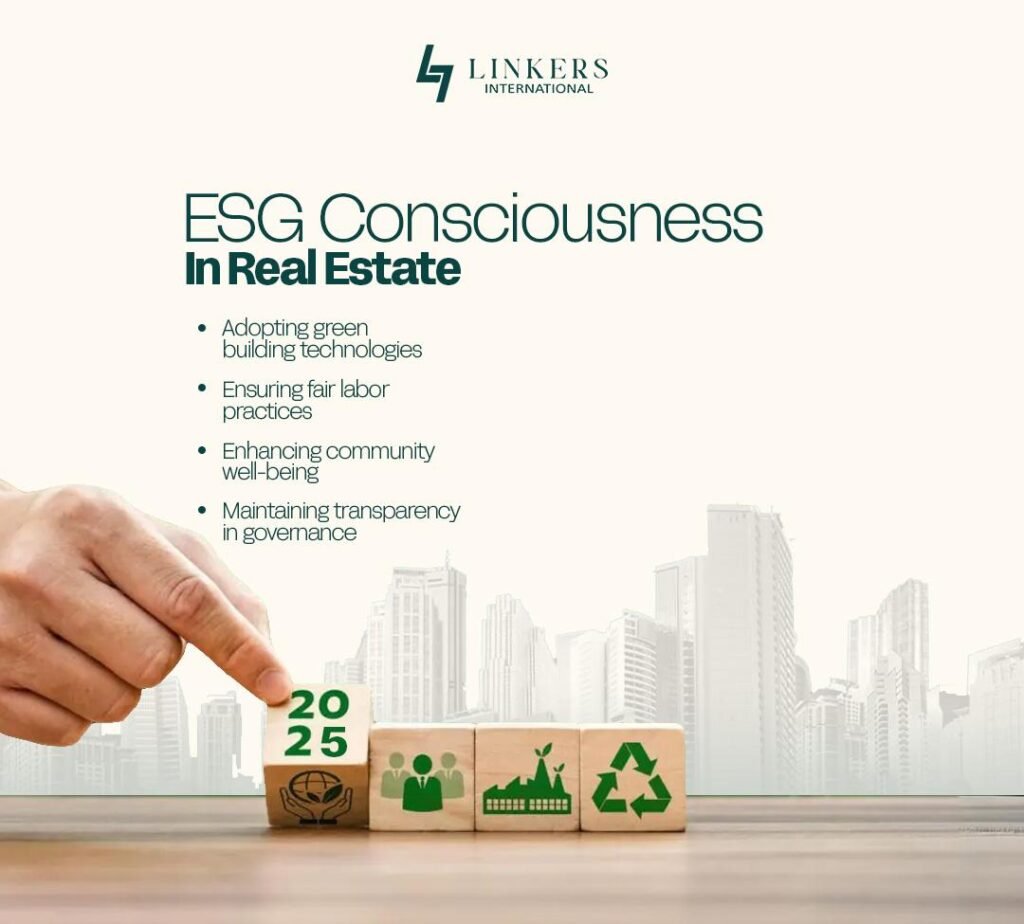
ESC consciousness in real estate refers to the growing awareness and integration of Environmental, Social, and Governance principles in property development and management. As the real estate sector significantly impacts energy consumption, carbon emissions, and urban infrastructure, there is increasing pressure on developers and investors to prioritize sustainability, ethical practices, and long-term value creation.
- Adopting green building technologies
- Ensuring fair labor practices
- Enhancing community well-being
- Maintaining transparency in governance
Globally, ESG-conscious real estate is not just a trend but a strategic shift driven by investor demand, regulatory changes, and environmental responsibility. As stakeholders become more informed, ESG is quickly becoming a critical benchmark for assessing the viability and impact of real estate projects.
Key ESG Indicators in Real Estate
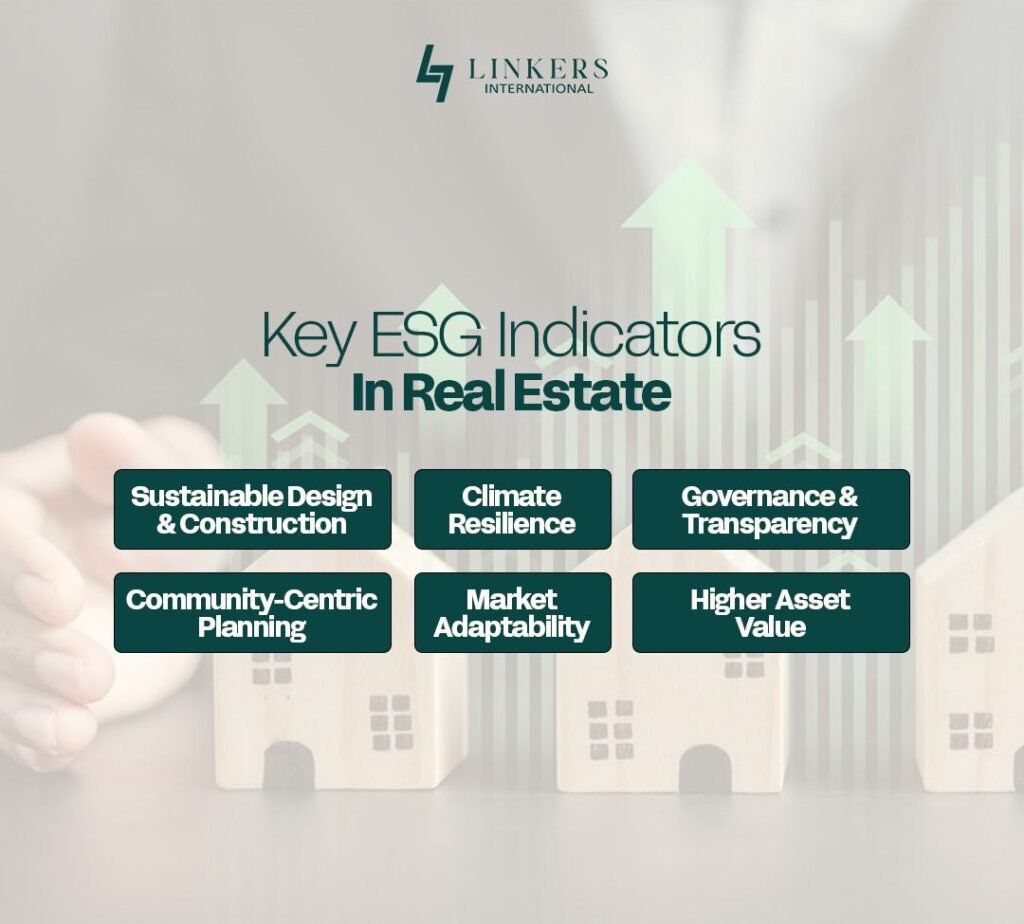
Smart investors want long-term security, market relevance, and impact. ESG principles answer the critical question: Is this project built to last? Future-proof real estate projects aren’t just built for today, they’re designed to thrive in tomorrow’s world. Investors need to look beyond aesthetics and short-term gains, and assess how well a development can withstand economic shifts, environmental challenges, and evolving societal needs.
A truly ESG-oriented project is resilient, adaptable, and aligned with ESG principles from the ground up. Here are the key ESG indicators in real estate.
- Sustainable Design & Construction
Energy-efficient materials and low-carbon infrastructure. - Climate Resilience
Built to withstand extreme weather, flooding, heat, and other environmental risks. - Governance & Transparency
Ethical business practices, clean financial records, and legal compliance. - Community-Centric Planning
Access to amenities, walkability, safety features, and inclusive public spaces. - Market Adaptability
Flexible spaces that can evolve with shifting demand; residential, commercial, or mixed-use. - Higher Asset Value
ESG-compliant properties often command higher rents and resale prices.
Why are More People adopting ESG Practices?
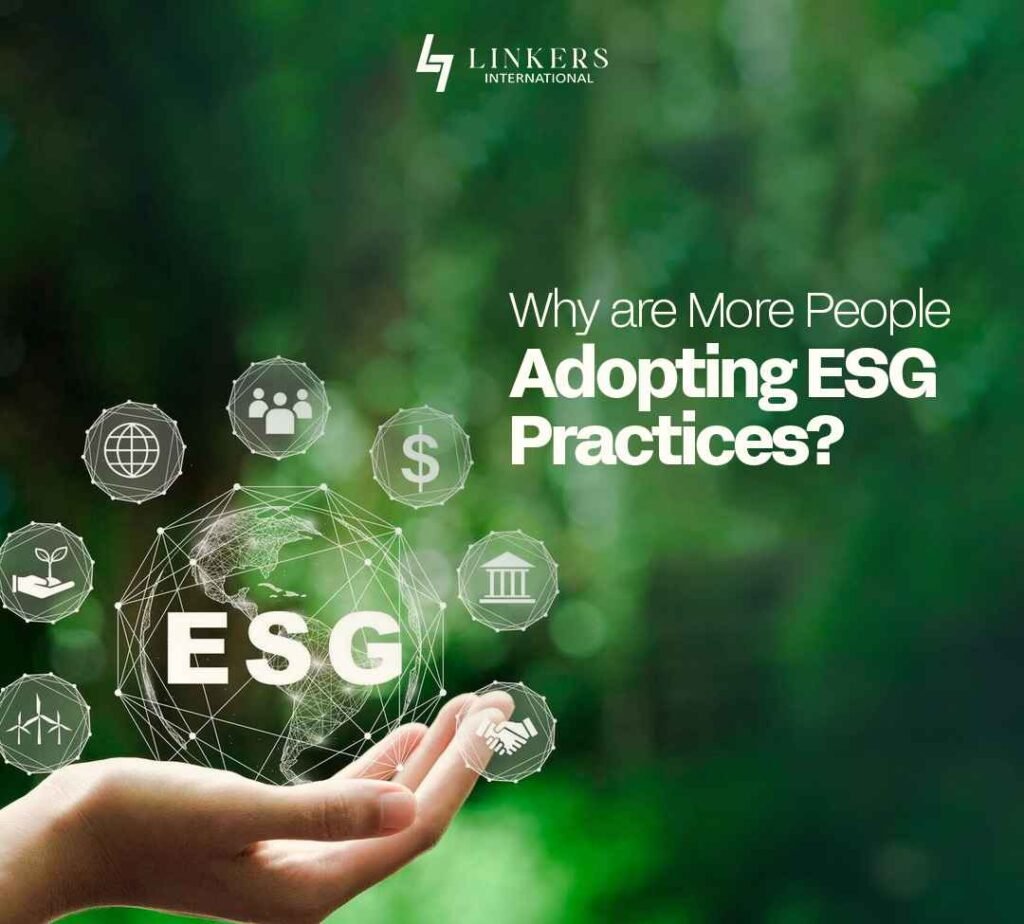
In today’s evolving investment landscape, ESG is no longer just a “nice to have”; it’s a strategic necessity. Real estate investors are increasingly prioritizing projects that deliver not just financial returns but also long-term sustainability, ethical governance, and social value.
ESG-conscious developments are proving to be more resilient, more attractive to global capital, and better aligned with the future of real estate.
Reasons ESG is taking center stage:
- Reduces risk exposure (climate, regulatory, reputational)
- Drives long-term asset value and higher tenant retention
- Attracts institutional and global investors with sustainable mandates
- Supports innovation through energy efficiency and smart infrastructure
- Strengthens brand reputation and stakeholder trust
Where Does Pakistan Real Estate Stand With Respect to ESG Consciousness?
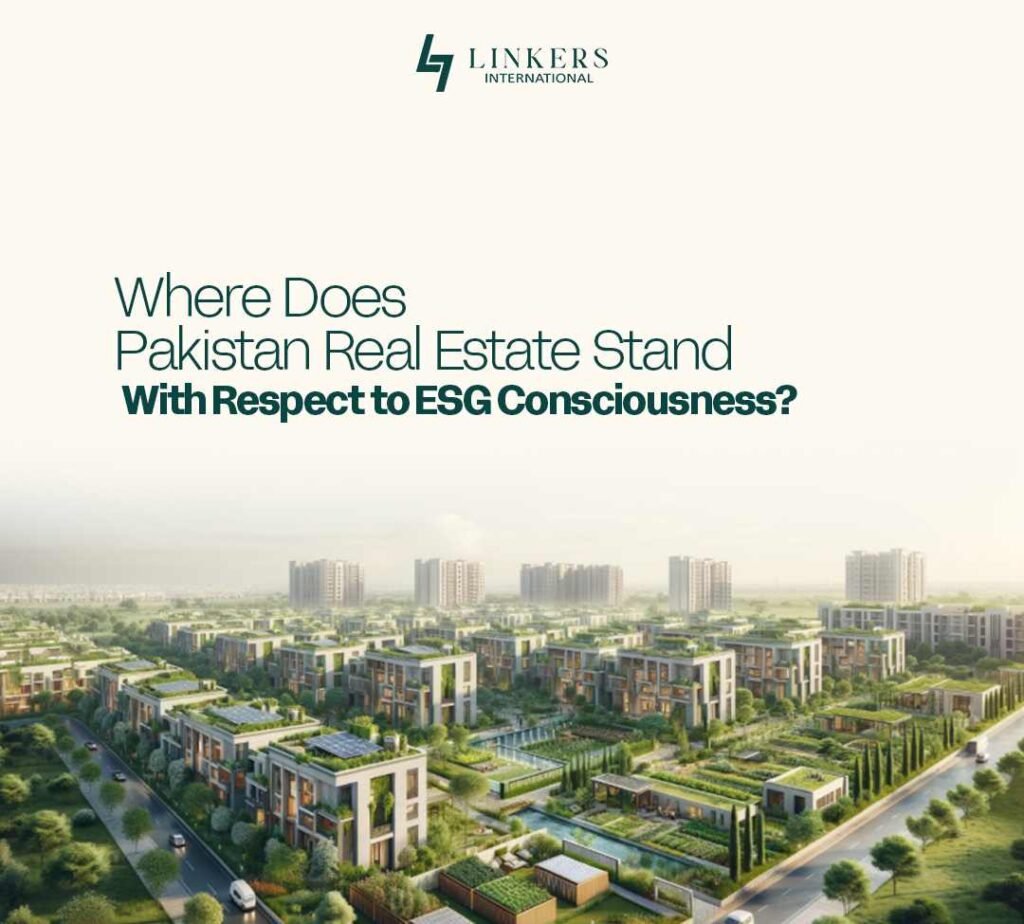
In recent years, ESG consciousness has begun to gain traction in Pakistan’s real estate sector, at a relatively early stage compared to global benchmarks. While awareness around sustainable construction, energy efficiency, and responsible urban development is growing, widespread implementation remains limited.
Developers are gradually incorporating green building practices, such as solar energy integration, waste management systems, and environmentally friendly materials. However, regulatory frameworks and investor-driven ESG mandates are still evolving. The momentum is being driven largely by high-end residential and commercial projects targeting overseas investors and environmentally aware buyers.
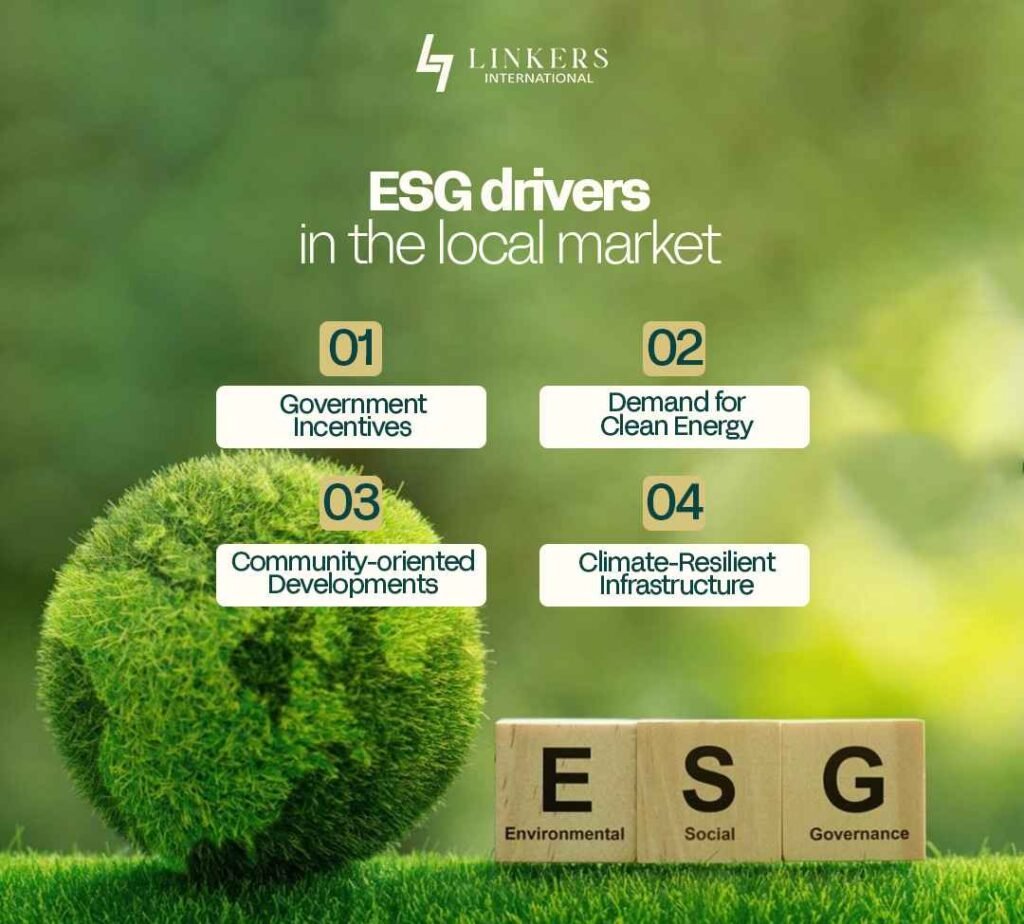
As Pakistan experiences rapid urban growth, shifting investor priorities, and increased awareness around climate and social responsibility, ESG is emerging as a strategic differentiator in Pakistan real estate. Developers who embed sustainability, community impact, and transparent governance into their projects are gaining a competitive edge. With policy support and a maturing investor mindset, ESG is no longer a future goal; it’s a present opportunity.
ESG drivers in the local market:
- Government Incentives
Policies supporting green construction, energy efficiency, and sustainable urban planning. - Demand for Clean Energy
Rising interest in solar-ready, energy-efficient buildings among tenants and buyers. - Climate-Resilient Infrastructure
A national need, especially in flood- and heat-prone areas. - Community-oriented Developments
Increasing preference for integrated amenities: schools, parks, healthcare, and more.
Linkers International and its Adherence to ESG Principles
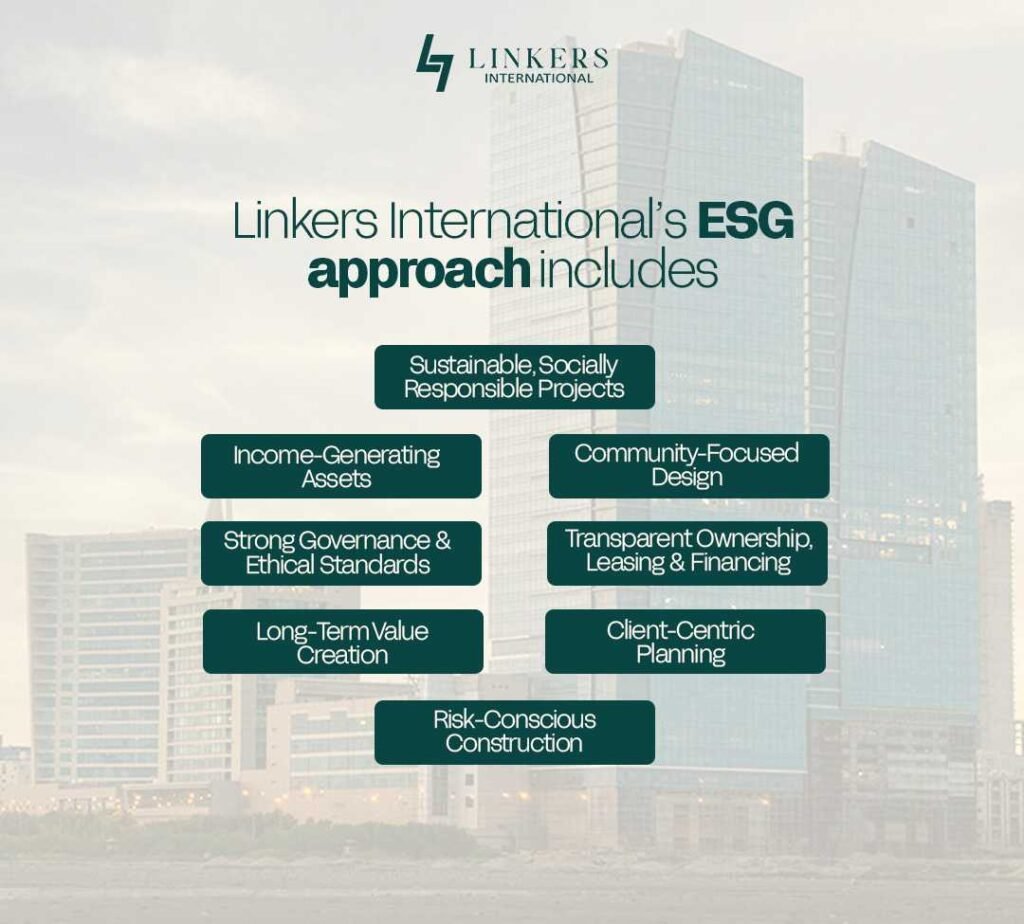
At Linkers International, ESG isn’t an afterthought; it’s embedded in every decision. Our projects, including Pearl Business Center, 27 Arclink, and Pearl Boulevard, are designed to serve both the investors and the communities.
Linkers International’s ESG approach includes:
- Client-Centric Planning: Every project and payment model, including the Construction-linked Payment Plan, aligns with our clients’ financial goals, values, and long-term vision.
- Risk-Conscious Construction: Linkers prioritize structural integrity, compliance, and climate resilience.
- Community-Focused Design: Developments that enhance livability through public spaces, safety, and access to services.
- Transparent Ownership, Leasing & Financing: Ethical practices in project approvals, asset ownership transfer, leasing, pricing, and stakeholder communication.
- Strong Governance & Ethical Standards: Fair contracts, clean operations, and accountability at every level.
- Long-Term Value Creation: Projects built on premium locations to benefit investors, tenants, and society for years to come.
- Sustainable, Socially Responsible Projects: Our developments reflect a commitment to ESG principles from the ground up.
- Income-Generating Assets: Ready projects, such as Pearl Business Center, offer monthly rentals to the investors.
Conscious Investing Builds a Better Future
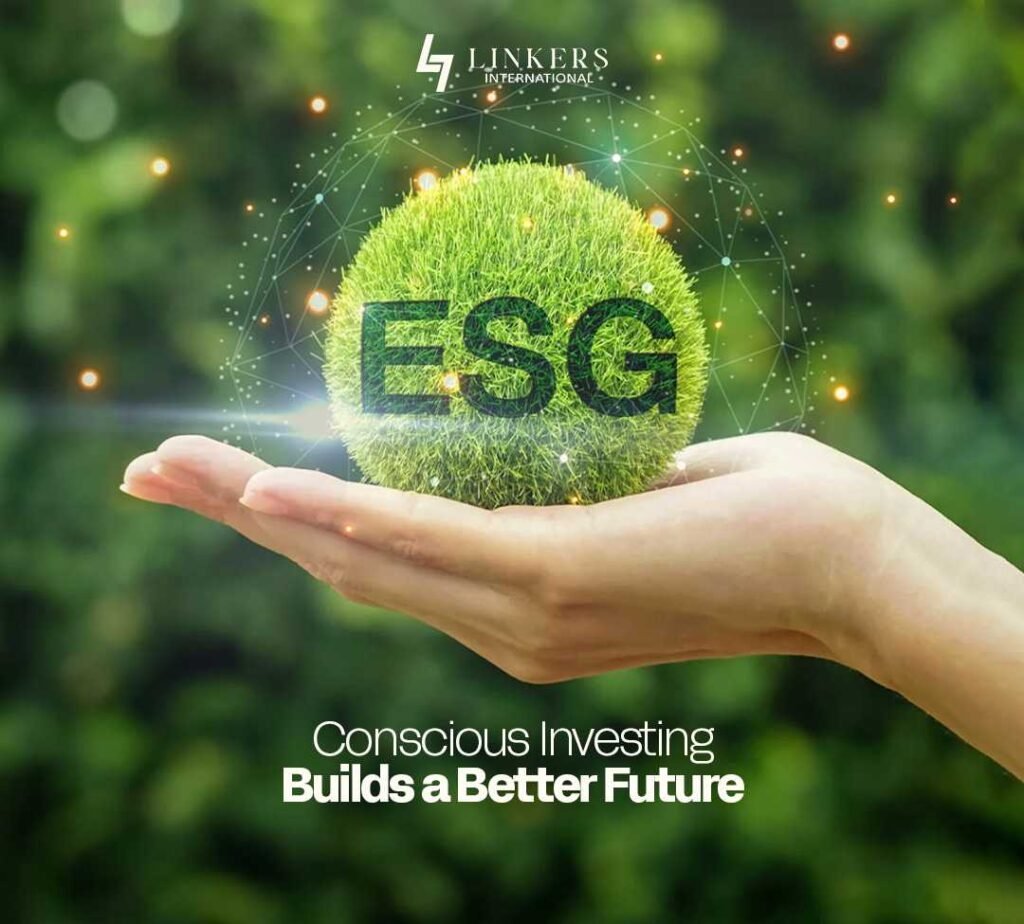
Conscious investing ensures that the homes, offices, and cities we build today won’t become problems tomorrow. It means using resources wisely, supporting inclusive growth, and practicing governance that’s rooted in integrity and transparency. Whether you’re an investor, a developer, or a policymaker, the decisions you make now will define the social and environmental legacy of your projects.
By integrating ESG principles into every stage of development, we go beyond short-term profits to create long-term value for people, the planet, and portfolios alike.


